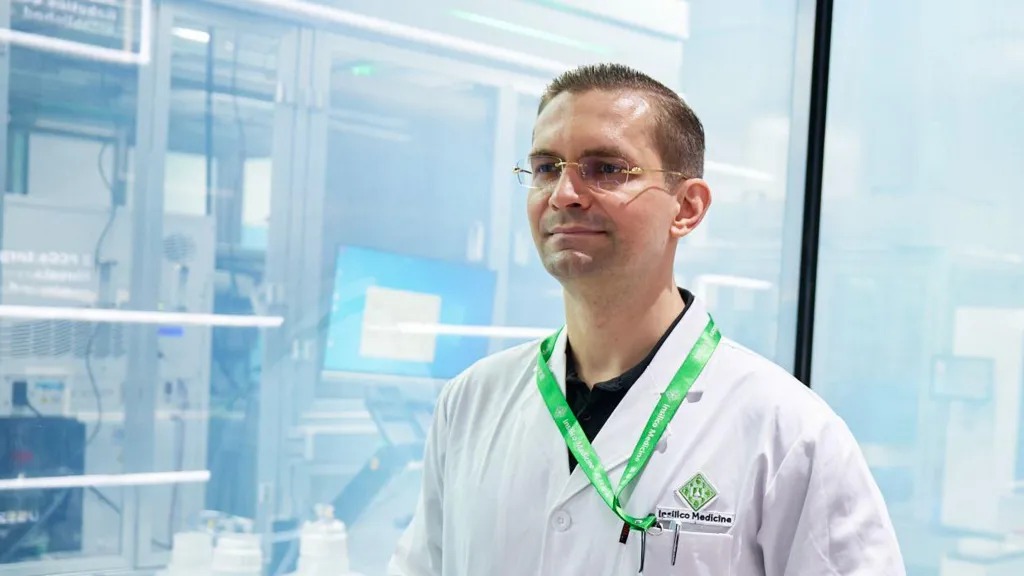
AI’s Role in Drug Discovery
1. Accelerating Molecular Design
AI’s generative capabilities are transforming the traditionally time-intensive process of drug discovery. Tools like generative AI design potential drug molecules by predicting how they might bind to therapeutic targets, significantly reducing the need for manual testing.
For example, Insilico Medicine developed an AI-designed drug for IPF, completing the discovery phase in just 18 months—compared to the industry norm of four years.
2. Identifying New Targets
AI is adept at analyzing vast molecular datasets to uncover connections between diseases and potential therapeutic targets, such as specific genes or proteins. This approach eliminates much of the trial-and-error associated with traditional methods, making drug development more efficient.
Companies like Recursion Pharmaceuticals use AI-driven data generation to uncover new relationships, as demonstrated by their molecule targeting previously untapped cancer genes.
Challenges in AI-Driven Drug Development
While AI offers promising advancements, challenges remain:
- Data Limitations: Limited datasets can introduce biases, potentially hindering molecule design and target identification.
- Clinical Trial Success: The ultimate test lies in proving that AI-designed drugs can not only enter but successfully complete clinical trials.
Despite these hurdles, firms like Recursion are advancing by combining AI with high-powered computational resources, such as cutting-edge supercomputers.
The Future of AI in Medicine
Experts believe that AI will not replace pharmaceutical scientists but rather enhance their capabilities. As more AI-designed drugs enter and succeed in clinical trials, the potential for better outcomes and lower costs will reshape the pharmaceutical landscape.
Chris Gibson, CEO of Recursion, notes, “When AI proves its ability to increase success rates, it will undoubtedly become the cornerstone of drug discovery.”





